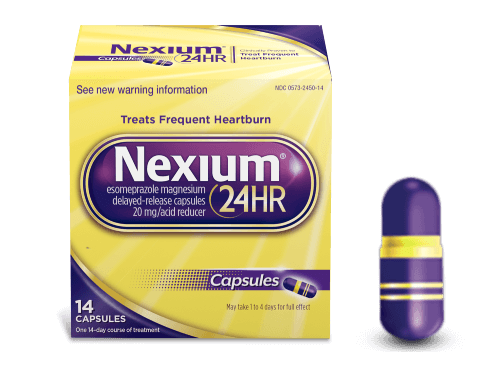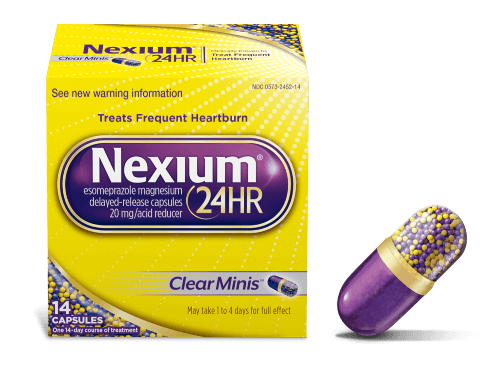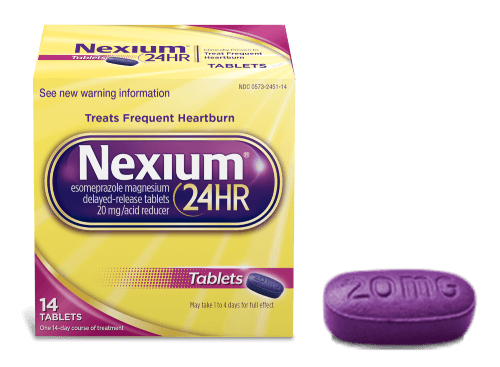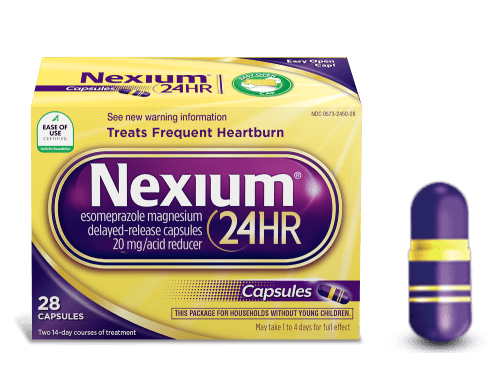Heartburn is a symptom of acid reflux, not a type of disease. By understanding the physiological causes of heartburn, you’ll better understand this burning sensation and what happens within your own body. You’ll also be able to debunk some common myths about heartburn and acid reflux.
Physiological Causes of Heartburn
Heartburn is the painful, fiery feeling that occurs when stomach acid rises into your esophagus. The burning sensation can run through your chest, close to your heart.1 Normally when you swallow, your lower esophageal sphincter (LES) relaxes open so that liquid and foods can flow into your stomach before closing again. In individuals who suffer from acid reflux and GERD, the LES stays relaxed, which means that the acidic contents of the stomach aren’t held back, and flow back into the esophagus, causing irritation.1
The anatomy of heartburn
To understand what you’re experiencing and where you may feel it in your body, it’s helpful to get to know the anatomy involved. Here are the key players:
- Esophagus. The muscular tube that connects the mouth and throat to the stomach. It lacks the protective lining of the stomach and is easily irritated by stomach acid.1
- Lower esophageal sphincter (LES). A circular band of muscles that acts as a valve and keeps the contents of your stomach in place.1 This is located around the bottom part of your esophagus. Things like smoking, abdominal pressure, hernias and other factors can contribute to the LES weakening or relaxing too much and allowing the contents of your stomach to reflux back up your esophagus.1
- Stomach. An internal organ in which some food digestion occurs. The stomach has a thick mucus lining that protects it against its own acidic digestive secretions.
- Proton pump. An enzyme that produces acid inside the cells that line the stomach.
- Diaphragm. A muscle that separates the chest from the abdomen and can be affected by heartburn.
Myths About Heartburn
Even though heartburn is relatively common, it’s also misunderstood. There are many common myths about heartburn that have been accepted as fact. Make sure you know fact from fiction when it comes to your health. Let’s bust three big misperceptions:
1. Everyone has the same heartburn triggers.
Triggers differ from person to person. It all comes down to how your body reacts to certain foods, other medications you may be taking, your lifestyle, weight, pregnancy and medical conditions. There are a number of common triggers, but the thing that causes heartburn for you may not produce the same reaction in another person. Taking note of your individual circumstances, actions and diet can help you understand your triggers.
2. You can get heartburn only from eating certain foods.
Triggers differ from person to person. For some people, foods may be that trigger for acid reflux. But for others, the root cause may be physiological or environmental. If you think a certain food may be a trigger, keep tabs on what you eat and drink and notice how you feel afterwards so you can learn how to avoid the things that trigger heartburn in your body. You may also want to pay attention to the time of day you’re eating and the size of your portions.
3. If you have bad breath, it means you have acid reflux.
Bad breath may be an indicator of acid reflux, but it’s not usually the only symptom.2 Other heartburn symptoms will likely include an uncomfortable burning sensation in your chest or throat, nausea and bloating.1 Bad breath can also signal other conditions, such as gum disease.3 If you are suffering from bad breath, consult your healthcare provider to determine the cause.
Whether you’re making changes to your diet or trying medication, understanding how heartburn affects your body is a great first step to finding relief. One great way to alleviate frequent heartburn symptoms is with a proton-pump inhibitor like Nexium 24HR Tablets, offering 24-hour protection in an easy-to-swallow format.
Source Citations:
- Heartburn. Cleveland Clinic. https://my.clevelandclinic.org/health/diseases/9617-heartburn-overview. Accessed 4/11/2023.
- Self-reported Halitosis and Gastro-esophageal Reflux Disease in the General Population. National Library of Medicine. https://www.ncbi.nlm.nih.gov/pmc/articles/PMC2359469/. Accessed 4/11/2023.
- Bad Breath. MedlinePlus. https://medlineplus.gov/badbreath.html. Accessed 8/14/2023.





